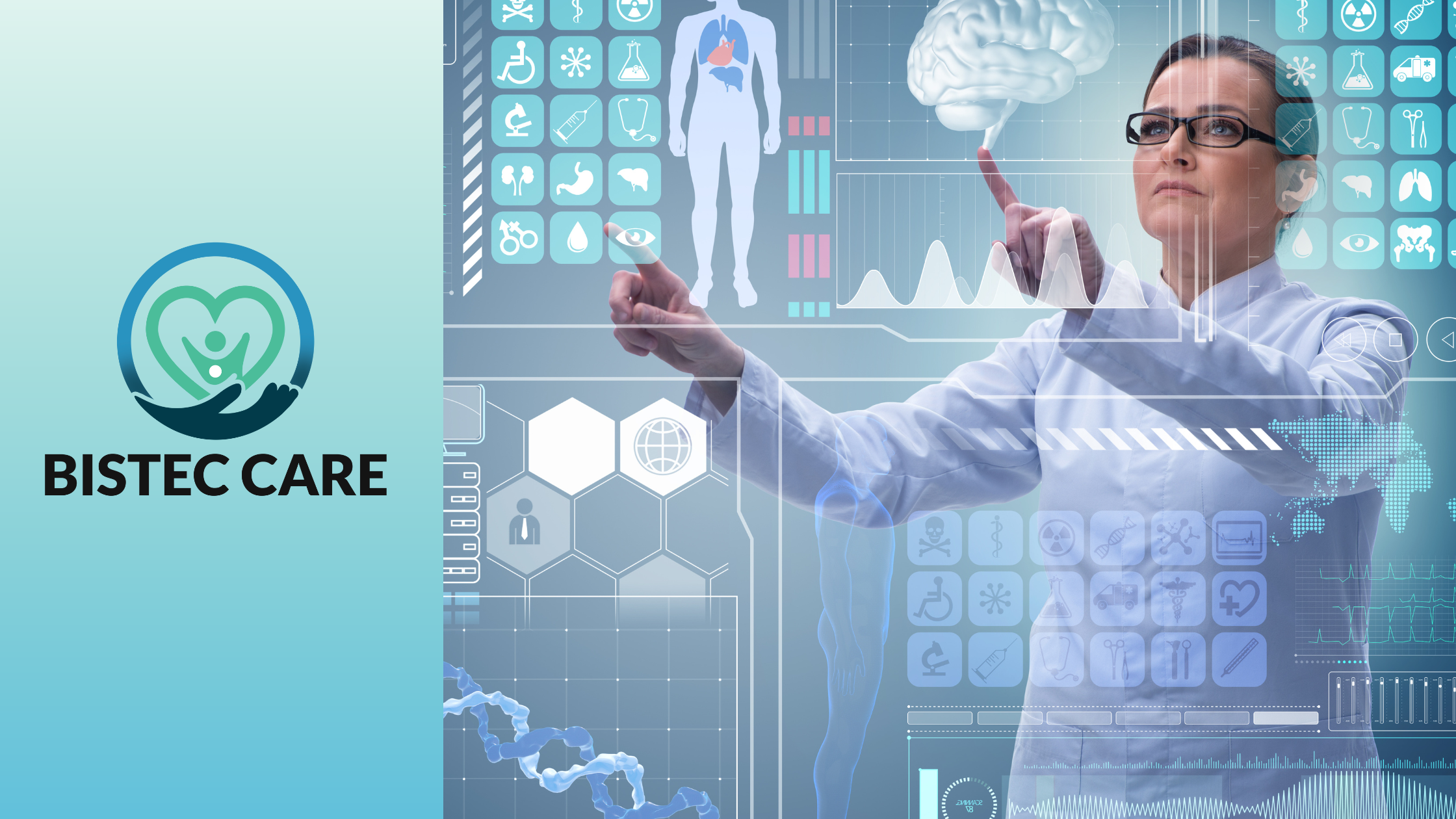The 21st century has been marked by rapid technological breakthroughs that has had an impact on every aspect of our daily lives, including healthcare.
The way we view and receive medical treatment has changed dramatically as a result of the merging of technology and healthcare. Here’s how technology is fundamentally changing the healthcare industry.
Telemedicine and Virtual Healthcare
Wearable Technology and Remote Monitoring
Artificial Intelligence and Data Analytics
Electronic Health Records (EHRs)
Robotics in Surgery
3D-printing & bioprinting
Chatbots
Genome sequencing
1.Telemedicine and Virtual Healthcare:
The rise of virtual and telemedicine healthcare is one of the biggest effects of technology on the medical field. Thanks to advanced communication tools and high-speed internet, patients can now interact with medical specialists from the convenience of their own homes. In addition to increasing access to healthcare services, telemedicine has shown to be extremely helpful in times of global health emergencies by facilitating prompt medical consultations while lowering the risk of infection.
2.Wearable Technology and Remote Monitoring
The widespread availability of wearable technology, such as fitness trackers and smartwatches, has made it possible for people to track their health in real-time. These gadgets monitor physical activity, vital signs, and even early warning indicators of possible health problems. In addition to giving people the confidence to take charge of their health, this ongoing remote monitoring gives medical professionals important information for more proactive and individualised care.
3.Artificial Intelligence and Data Analytics
Healthcare is undergoing a change thanks to the combination of artificial intelligence (AI) and data analytics, which consequently improves predictive analytics, treatment plans, and diagnosis. Large volumes of medical data can be analysed by machine learning algorithms, which can also spot trends and help medical personnel make decisions that are more timely and accurate. AI is being used to improve overall patient care and system efficiency in healthcare settings by interpreting medical imaging, finding new drugs, and even forecasting patient outcomes.
4.Electronic Health Records (EHRs)
The healthcare workflow has been expedited by the switch from paper-based medical records to electronic health records (EHRs). EHRs make it possible for healthcare practitioners to share patient data easily, which lowers the risk of medical errors and enhances care coordination. Online access to medical records by patients encourages openness and gives them more influence over their treatment choices.
5.Robotics in Surgery
The profession of surgery has greatly benefited from robotics advancements. Surgical treatments with robotic assistance can be performed with increased accuracy, fewer incisions, and faster patient recovery. Surgical results and patient satisfaction have improved as a result of surgeons' increased precision and control in performing difficult procedures.
6.3D-printing & bioprinting
3D printing has enormous potential to improve all aspects of healthcare. Although it will take some time to print ready-to-use organs and permanently eliminate transplant waiting lists, the field is moving forward steadily, and new developments are being made on a regular basis.
Nowadays, we can print blood arteries, artificial limbs, retinal cells, medicines, bio tissues and regenerative heart valves that develop with the patient, as well as a long list of other things.
7.Chatbots
Natural language processing (NLP) and machine learning (ML) advancements in recent years have opened up new avenues for chatbots to assist healthcare providers. Large databases can be accessed by chatbots, which can then present insightful facts in a conversational style. They can assist with arranging clinical appointments and provide information to patients regarding symptoms, dietary requirements, and other topics. Bots for chat are scalable. Inquiries about health insurance, diagnosis, and mental health support can all be handled by chatbots. Cognitive behavioural therapy (CBT), for instance, is already being offered by chatbots to patients suffering from anxiety, depression, and post-traumatic stress disorder (PTSD). Additionally, they are assisting those with autism in developing their social and interviewing abilities.
8.Genome sequencing
Genome sequencing is becoming more affordable, and soon enough genetic consultations will be routine. It's crucial to keep in mind that, like many other advances throughout history, gene technology is likely to be abused by the strong. But this limitation should surpass the endless advantages to be had as a result of this. Technologies like CRISPR can save many lives by improving knowledge of allergies and congenital diseases, whilst advancing preventative treatment.
Conclusion
The significance of digital advancements in healthcare cannot be emphasized enough. With technology constantly reshaping various sectors, its profound effects on healthcare are undeniable, revolutionizing how medical services are provided, accessed, and organized. No one understands this better than BISTEC Care.
With plans already underway towards amalgamating the rapid advancement of AI and data analytics into their system, BISTEC Care provides Sri Lanka’s medical clinics with all the modern technologies necessary to manage all the administrative and clinical needs of healthcare providers. From treatment marker displays to an inventory management module, BISTEC Care enables you to digitize all your patient data to ultimately increase the operational efficiency of your healthcare practice!
Join us in ushering in a new era of Sri Lanka’s medical efficiency and patient care. Give BISTEC Care a go today.
Key Terms:
Telemedicine and Virtual Healthcare, Wearable Technology and Remote Monitoring, Artificial Intelligence and Data Analytics, Electronic Health Records



